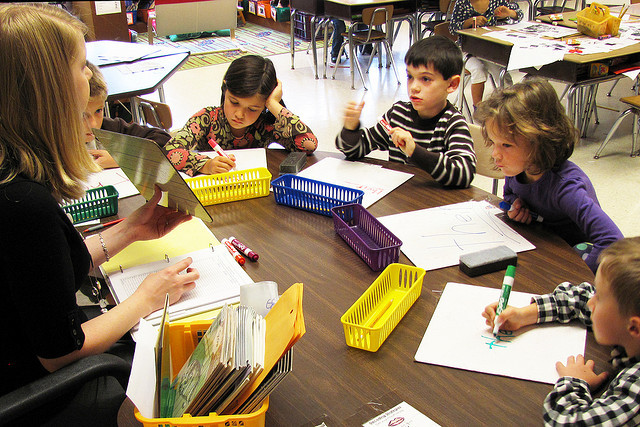More than 2,000 low-income North Carolina parents will be able to send their children to the schools of their choice after all, thanks to the state’s Supreme Court.
“Today’s historic decision vindicates the over 4,500 parents who applied for their child to receive an Opportunity Scholarship and puts parents back in the driver’s seat of their child’s education,” Darrell Allison, president of Parents for Educational Freedom in North Carolina, said in a statement.
The program allows 2,400 students from low-income families to receive public scholarships, or vouchers, to attend private schools. In the first 25 days of applications, more than 5,500 students had applied, according to PEFNC.
When the scholarship law was passed in 2013, two lawsuits were filed to stop the program and keep students in public schools even if those schools weren’t a good fit.
Legal Wrangling
The North Carolina Association of Educators, which filed one lawsuit in conjunction with the North Carolina Justice Center and 25 taxpayers, argued the public money funding the scholarships is earmarked by the state’s constitution to fund public education.
Those representing pro-school-choice parents in the lawsuit agreed the state’s constitution sets aside certain money for public education, but argued the scholarships are funded through a separate area of the state budget.
Lawsuits often take weeks or months, so in February, Wake County Superior Court issued a preliminary decision stopping the program until it gets sorted out in court. The parents who were denied the chance to put their children in schools of choice then took their case to the court of public opinion, issuing YouTube videos and Twitter posts decrying the opportunity their children had lost for attending a school the family wanted.
The Institute for Justice appealed the injunction to the Appeals Court, then to the state Supreme Court. The state Supreme Court allowed the program to continue until courts reach a final decision over whether the state’s constitution permits voucher programs.
Appeals Court to Hear Case
“The [trial] judge put his foot on the brakes, and the Supreme Court took his foot off the brake,” said Richard Komer, senior attorney for IJ and lead attorney on the case.
The state Appeals Court will hear arguments and may refer the case back to the trial court for arguments over whether the program is constitutional, said Renee Flaherty, an IJ attorney also working on the case.
Parents previously denied the private-school vouchers now will have that option this fall. The state plans to begin distributing the voucher funds on August 15.
“It’s a substantial victory for school choice. Not necessarily a final victory, but it at least means the implementation of the program can proceed again,” Komer said.
Article reprinted with permission. Image by WoodleyWonderworks.




